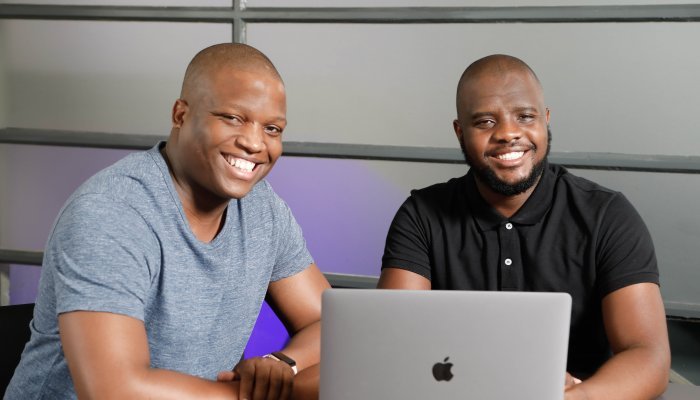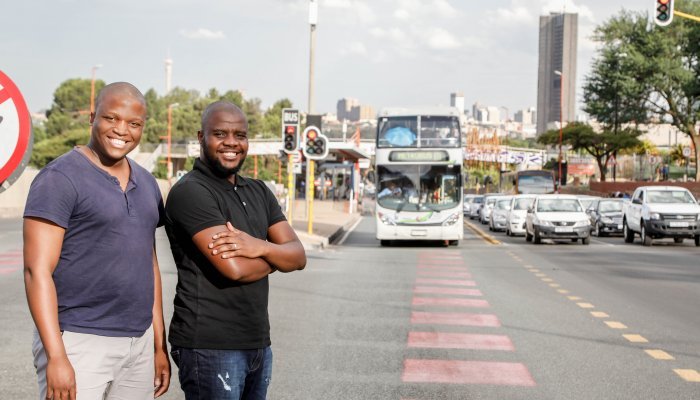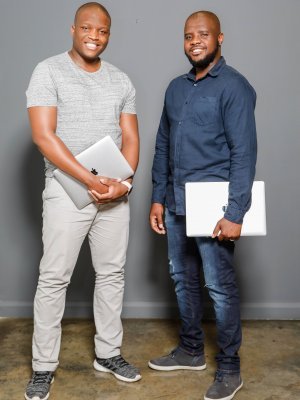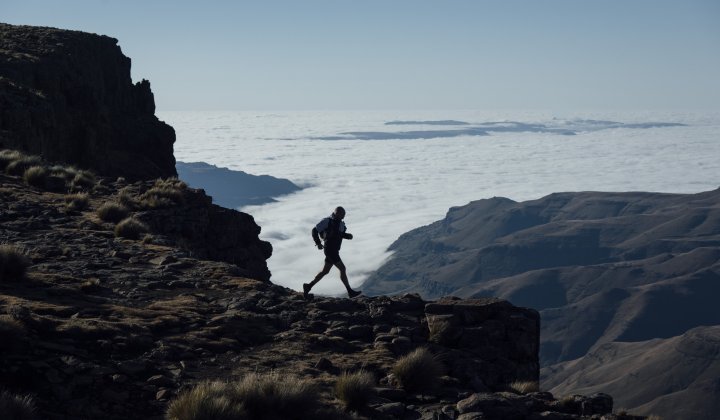We spend a third of our lives asleep, a third of our lives at work, and another third wishing for less of the second and more of the first. For many, the trouble with the workweek is the daily commute, a problem the City One app aims to solve.
“The inspiration for City One was the continuous petrol hikes in past months, watching people cramp up in traffic while travelling in the same direction every day, and the coming future of transportation globally,” says co-founder Simphiwe Kuse. “We are focused on cutting down traffic in South Africa and improving transport in other parts of the continent.”
City One was launched in Cape Town in June 2018 and currently operates there, with the N1 route (Bellville to Cape Town CBD) growing well. It works the same as most other ride-sharing apps in that it connects passengers with drivers. However, there are a few key differences.
...we’ve gone through over fifty iterations of the product that are influenced by customer feedback.
“The City One app does the heavy lifting of finding drivers going in your work direction and travelling at your commute times,” Kuse explains. “You pick the driver that suits your preference and request when you want them to pick you up. Once the driver accepts the request, you can communicate the details of when to be picked up via a secure messaging channel. The driver is also obligated to pick you up for both the ride to work (morning) and ride home (evening).”
No charges are involved in the requesting or booking process, with riders only paying when each trip is completed. If the driver or passenger can’t make a scheduled journey, they have flexible windows to cancel without incurring a charge.
“The driver can set the price of the trip to an amount of their choice but it cannot be below R20,” Kuse says. “We also suggest a price to them but in the end the choice is theirs. Also, the passenger and driver can rate each other after each trip, meaning bad drivers and passengers are surfaced and rooted out.”
Cutting down on commuting costs
The app is still new but Kuse reports that all is “on track with our planned objectives and key results” with daily and weekly numbers “low but growing”. And while this 100% African-owned, self-funded business is not yet profitable – the app takes a 15% service fee from each completed trip – their aim is to continue targeting people with regular 9-to-5 jobs who travel to work by vehicle every day and have a dire need to cut down their commuting costs.
“What appeals to passengers is the prospect of saving money and the vehicle’s mileage,” Kuse says. “For drivers, it’s the prospect of making money to cover commuting costs. A passenger can pay as little as R700/month for commuting from a current R1 400 while a driver could make up to R2 100 up from the same R1 400.”
As with other ride-sharing apps, safety on the platform is critical. Drivers are vetted and their vehicles are inspected while passengers having to pay by card enforces tight security. But City One takes this a step further by allowing passengers and drivers to choose who they want to ride with.
“From the time of our inception, we’ve gone through over fifty iterations of the product that are influenced by customer feedback,” Kuse says. “At first we believed drivers registering with their cars and nothing more would attract passengers but soon learned passengers are attracted to the social aspects of the driver. Do they smoke? Do they play music? Where do they work? The platform has hence evolved to be a lot more social.”
Actively looking for solutions
Indeed, what sets City One apart from the likes of Uber and Taxify is its focus on carpooling to lower congestion while further decreasing costs for passengers and raising potential earnings for drivers. It’s why co-founder Gugulethu Mhlanga prefers to consider apps like uGoMyWay and CarTrip as his competitors.
“The ride-sharing industry is still in its infancy,” Mhlanga says. “There’s a lot of behavioural change that needs to take place for it to be a known way of travelling. People are however aware of its necessity and actively looking for solutions.”
City One realised that the concept of ride-sharing needs a financial nudge to get people to try it (i.e. a free first ride). And while they had the skills in-house to build the product and didn’t need external funding at first, they are now raising a seed round with the goal of reaching five thousand trips completed each day by year-end.
“In any technological transformation, behavioural changes are the biggest challenge,” Mhlanga says. “Teaching people a new technology can be challenging as adoption tends to be low. We are focusing on the small number of people adopting our app, and making sure they love it and are willing to share it with their friends. From there we will grow to the early and late majority of the market.”
Inspiring a more diverse tech community
Mhlanga believes that self-driven vehicles and the associated technology are an exciting opportunity (albeit one with positive and negative effects) to transform the way transport operates in Africa. His focus for City One is to continue growing the number of trips within Cape Town, launching the Android app, and rolling out to other cities in the country and across the continent.
“The tech industry is unfortunately white and male-dominated,” he admits. “South Africa and Africa are generally regarded as third world countries due to many factors, one of them being a lack of rapid innovation in many industry categories. We want to inspire a more diverse tech community. We also want to inspire people who will transform the continent over the next one hundred years.”
Changing lanes
What challenges are you currently facing? The ratio of trips completed to download/activations is quite low. The challenge is behavioural change. People are used to driving alone and it’s not an easy change to get them to share rides.
What’s the hardest thing you’ve had to overcome? Building the apps (driver and passenger) was quite the feat. We tested regularly and often had to rebuild features from learnings. Building one app is hard; building two is even harder!
What were your thoughts about this at the time? Technological difficulties often happen when developing any sophisticated product. But it’s important to continue and finish the work.
How did you overcome the difficulty? We tested more and focused on getting one feature done at a time.
What made you persist despite the obstacles? If we didn’t solve it, someone else (probably an international company) would build and launch the same product in a few months or years. We believe locally built products inspire people to start their own businesses.
What lessons would you offer other aspiring entrepreneurs? Building products can be complex and mentally challenging. As clichéd as it may sound, the secret to succeeding is persistence. If you persist long enough, you get to cross a certain line where only a few are successful. That’s where the magic happens.







